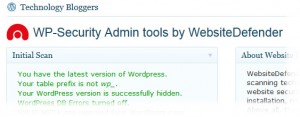Technocrati.com have recently published their State of the Bolgosphere 2011 report and it raises some interesting questions. The report is based upon a survey of 4114 bloggers around the world, and presents various statistics in easily readable graph format explaining who blogs and their stated reasons why and purposes.

I am one of the 30% over 44 year olds, with the majority being considerably younger than me and much more experienced. A small percentage treat blogging as their job, make an income from their posts or run a blog for their own business or employer. The vast majority do it as a hobby, in the main to express their expertise or interests. A major sector say that they just blog in order to speak their mind freely.
I am most interested in the professional category, and I in fact find myself somewhere within that group. I am not however paid to promote something, but to provoke discussion about the ethical implications and responsibility issues brought about by technological development, and one of my tools is blogging. My employer is also a non-profit research foundation, so the aim of making money is out of the equation.
Blogging is generally perceived as a pier to pier action, and the report cited above demonstrates that people trust blogs and bloggers, in many cases more that they trust other publishers. But what if we find people publishing reviews about services or products that they have a vested interest in? If I am paid by a company to review or promote their products can I be really honest in my views? And what about the breech of trust implied?
In the US the FTC (Federal Trade Commission) made a ruling in 2009 determining that bloggers have to state if they are paid for posts by an interested third party. If a blogger in the US does not state that they either receive the product to keep or are paid by someone to write the review they risk an 11000 dollar fine. In the UK the Office of Fair Trading also has extensive blogging disclosure rules. All well and good, but the report above states however that only 60% of people that find themselves in this position actually adhere to the rules, and the statistics are very likely to be skewed, as when a person is asked if they have respected the rules that almost always say yes.
How could this problem be addressed? The Technology Bloggers site refuses to publish anything that may be deemed promotion, the author guidelines are clear. But would it be possible for all blogs make this statement and enforce it, and if it were possible would they do it? The implications for trust and the spreading of reliable information are obvious.
Another issue I wish to raise involves advertising. The report offers various statistics about how many blogs have advertisement placings, before going on to analyze the reasons given either for not carrying or carrying advertising, the issue of control over who advertises and the possible financial rewards.
Here again we step into the issue of trust. If a blog has a reputation as offering reliable and quality information this reflects upon the company advertising. The placing is a two way endorsement. If advertising is not offered (as some may feel that it affects independent status or may not reflect the blogger’s ideals), how can a blog not only make money (if that is the aim) or even cover its expenses? Most bloggers sink their own money into setting up and running their blog, and if you add up the time spent in maintenance (and the administrators are undoubtedly experts in their field) each blog should be seen as a real investment in terms of many different forms of capital. You pay $120 an hour for such expertise in other fields!

